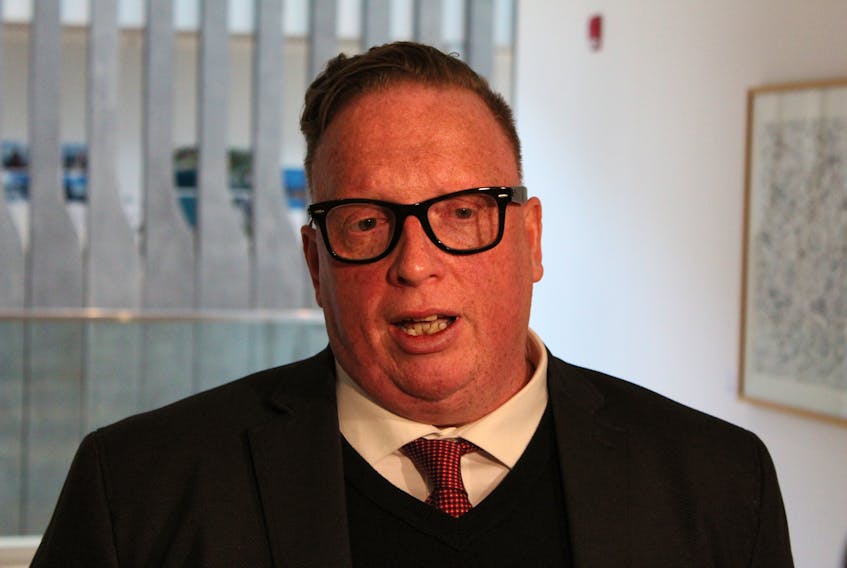ST. JOHN'S, N.L. — A day-long conference on “reasonable solutions” for the fiscal challenges before Newfoundland and Labrador was held Tuesday at Memorial University.
More than 100 people attended the conference, organized by the Collaborative Applied Research in Economics (CARE) initiative through Memorial University’s department of economics.
The problems facing the province are well documented. Seven years of deficits, the massive impact of the Muskrat Falls project and growing net debt are major roadblocks for the fiscal future of the province, as outlined by auditor general Julia Mullaley.

“It’s really an expenditure problem that we have,” Mullaley told the conference.
Government spending has increased by 33 per cent over the last 10 years, from $6.3 billion to $8.4 billion, with a nine per cent decrease in overall revenues during the same period.
While Mullaley expects an update to the overall fiscal plan as part of the coming provincial budget, she says in order to return to surplus by 2022-23, the government needs to cut just under two per cent (or approximately $600 million) of spending between now and then to get there.
Memorial University political science professor Russell Williams says while it’s not a popular suggestion, the government has room to raise taxes to alleviate the fiscal crunch.
“A lot of the emphasis of the province has been on cuts, cuts to service delivery, cuts to government, and my point is simply that Newfoundland fails to collect some tax revenues that other provinces collect,” he said.
“Given the state of crisis that the province is in, I think we should be having a discussion about some of these areas.”
Looking back at the deficit-reduction levy, Williams says instead of announcing a separate tax measure, the government could have increased income taxes to raise similar amounts of money.
“That’s an important part of this conversation: to ask the question, why it is that if we’re in crisis, we’re headed towards bankruptcy, why is it that we have tax rates that are lower than other Atlantic Canadian provinces?” he said.

Former Progressive Conservative finance minister Ross Wiseman says part of the problem is that good politics and good policy aren’t always the same thing.
“The province is extremely diverse. Each region has its own unique set of circumstance and its own unique set of problems and issues they want resolved. Lots of times, those individual district issues are important for those districts, critical for the people who live there,” said Wiseman.
“But it may be in conflict with the greater good of the entire province. All of a sudden you have the collection and the sum total of all of these individual issues in districts that are driving an agenda, rather than sitting back and reflecting on what’s in the best interest of an entire province.”
“We’ve now got the cumulative impact of all those decisions, over 70-odd years." — Ross Wiseman
Wiseman says one idea practised elsewhere that could help focus the province on long-term issues are three-year plans.
“The first part of the three years is the budget, and that continues to move out. The government themselves and various departments and agencies would all know that for the next three years, here’s the track they’re on,” he said.
“Circumstances arise, you can adjust. Like all plans, you go back and redraft, but then you make all the adjustments in the three-years out. You’re able to have greater predictability, greater certainty.”
Whatever the solution, Wiseman says the problems of today have been brewing for decades.
“We’ve now got the cumulative impact of all those decisions, over 70-odd years, (which) brings us to be where we are now.”
Twitter: @DavidMaherNL









